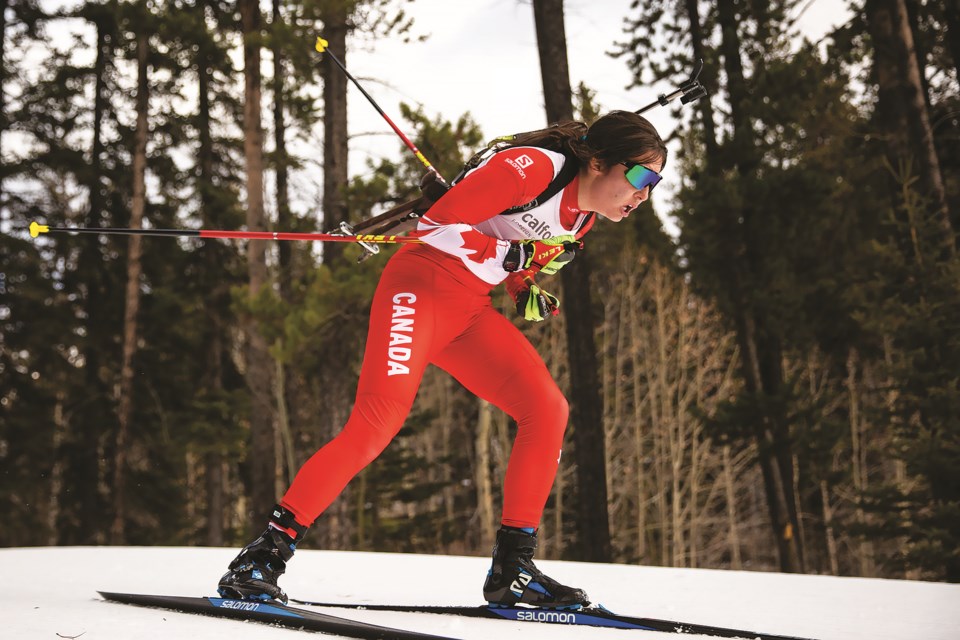Megan Bankes keeps climbing higher with every shot and slide.
Her talent in biathlon now has her eyeing the summit as she competes at the Beijing 2022 Olympics.
“It feels pretty incredible to be at the Olympics, and to know that I'm going to be an Olympian,” said the 24-year-old Calgarian. “I've put in a lot of years of work to get here. It's so exciting to have a dream of mine come to fruition.”
Her Olympic journey began at age three when she started cross-country skiing. She moved onto biathlon at 11 with the Foothills Nordic Ski club in Calgary.
She first represented the Maple Leaf in her late teens at the 2014 International Biathlon Union (IBU) Youth World Championships in Presque Isle, Maine.
She went on to win gold at the 2017 IBU Junior World Championships, where she became the first Canadian woman world junior champion.
And in her first season as a senior in 2018-19, she secured bronze in sprint at the IBU Cup in Obertilliach, Austria, before adding to her athletic resumé a 25th-place finish in the 15-kilometre individual event at Antholz-Anterselva, Italy in Jan. 2021.
What’s her secret? Something in the pure, glacier-fed water of the Rockies?
No, just lots of hard work and focused training.
“And getting to work with amazing coaches, and keep building on skills and techniques to try and be as proficient at biathlon as possible,” she said.
Of course, scaling the athletic heights has had its challenges.
She experienced a knee injury last spring and summer, and was also diagnosed with Celiac disease, an auto-immune disorder that affects digestion and can make it difficult for the body to absorb nutrients.
The diagnosis was a “shock”, Bankes said, but she has since brought it under control and switched to a gluten-free diet.
“I took it as a challenge to continue to make delicious meals. I also feel way better racing and training, so it makes not being able to eat bread and pastries worth it,” she said.
While it’s not news to her fans, after she came out in an Instagram post in 2020, Bankes joins a small but growing number of publicly gay Olympians.
“I'm really proud to be an openly queer athlete, and to be able to represent the 2SLGBTQIA+ community,” she said. “I think it's particularly important for young kids watching the Olympics to see that with enough hard work and determination, it is possible to make the Olympics, regardless of gender (or) sexual orientation.”
Looking ahead to her sprint, individual and relay events scheduled between Feb. 5 and 16 at the Zhangjiakou ski zone north of Beijing, Bankes said she’s ready to compete. She’s not bothered that she’ll be skiing on artificial snow.
All the powder at the Olympics will be made by machines, due to the fact the slopes in the Zhangjiakou and Yanqing Zones receive little snowfall, according to an International Olympic Committee Report.
“We train and race on artificial snow at a lot of venues, including in Canmore particularly in the early season. We’re very used to it,” Bankes said.
Although COVID-19 protocols prohibit spectators at the Games, she will at least be wearing a symbol of the Wild Rose province.
“I always have a little keychain made by an Alberta artist. It’s (a piece of) wood cut out in the province's shape, with some mountains and wheat drawn on it, and it's a little reminder of home for me.”



.png;w=120;h=80;mode=crop)